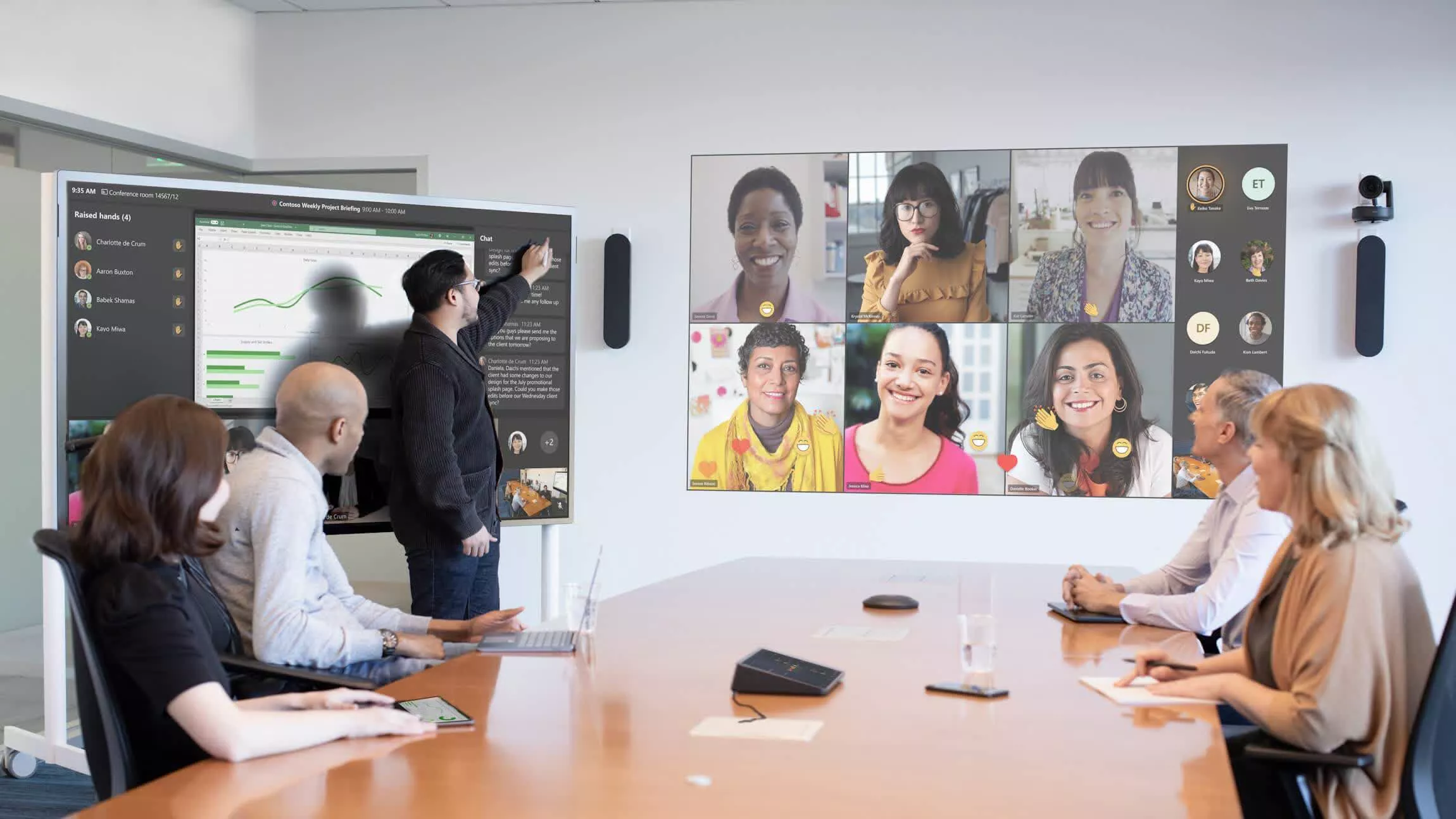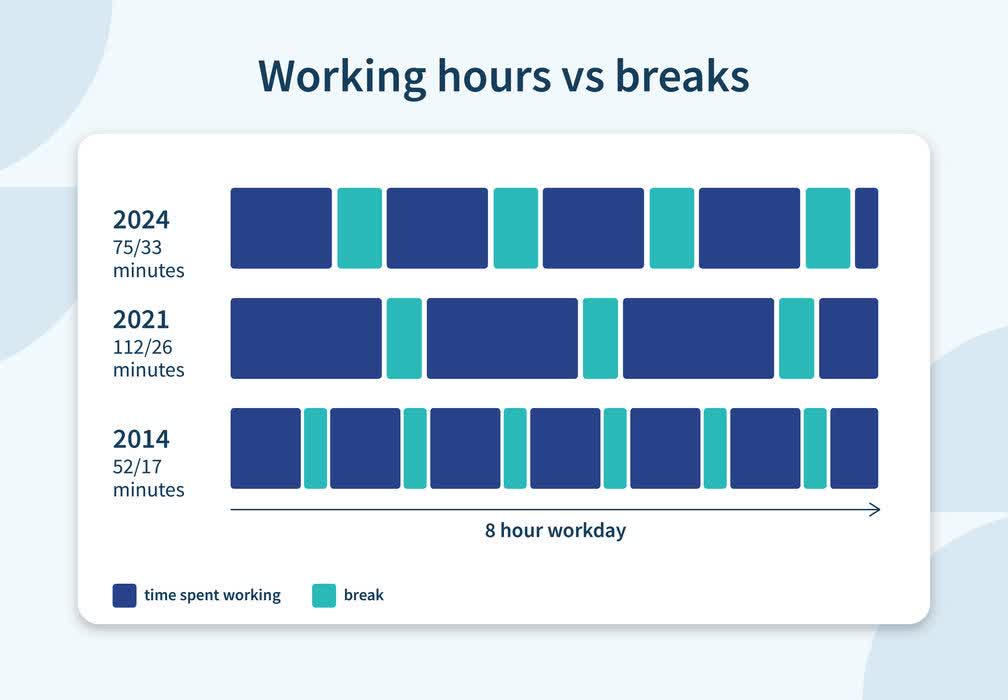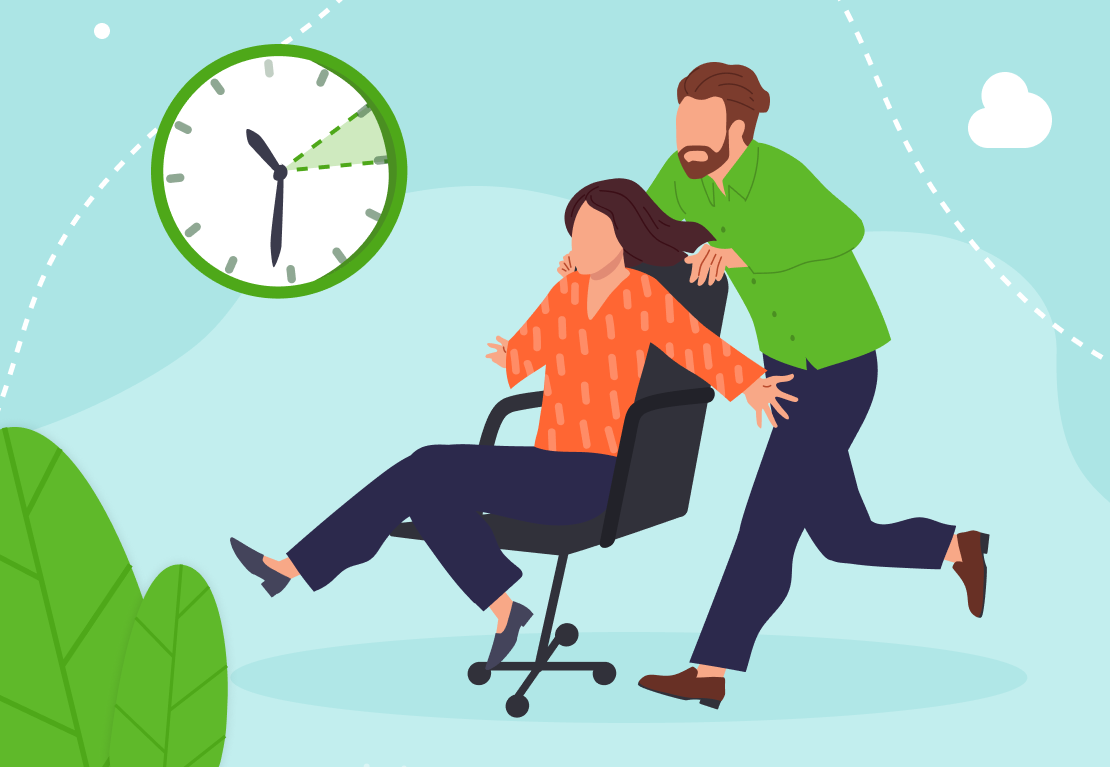A hot potato: Many bosses espouse the belief that working non-stop for hours on end without a moment's break is the key to high productivity. But a new study disputes this claim. It found that the most productive staff work in shorter bursts and take longer breaks. It also suggests that in-office and hybrid work encourages a healthier work-life balance than fully remote models.

DeskTime, the cloud-based time tracking and productivity management software from the Draugiem Group, carried out the recent productivity study.
The main takeaway was that the most productive employees operate on a 75/33 work-to-rest ratio: work for 75 minutes then rest for 33 minutes. That means in an 8-hour workday, the workers need about two hours and twenty-seven minutes of rest to be at their most productive.
During the remote working years of the pandemic, the ratio was 112/26, meaning the most productive employees were working 1.5 times longer without breaks, which were 1.3 times shorter. It was also found that workers took roughly 3 breaks over an 8-hour workday while at home. Now, they take approximately 4 longer breaks.
In 2014, the figures were 52/17, or 118 minutes of rest in an 8-hour day.
DeskTime posits that in-office or hybrid work offers a better work-life balance than being fully remote. Being in an office can lead to more indirect breaks, such as interactions with other workers and movements to other areas of a building, as opposed to sitting in front of a screen at home by yourself, relentlessly hammering away at a keyboard.
DeskTime CEO Artis Rozentals said that people are more naturally prone to taking breaks in the office, and while they may seem unproductive at first, they're vital for mental rejuvenation and contribute to employee well-being.
"The hybrid model is the Goldilocks choice, as it best leverages both the in-office social dynamic and the deep focus afforded by remote work," Rozentals said.
DeskTime's study involved analyzing the software's top 10% of users, amounting to 6,000 people. These users had the highest percentage of time spent in applications considered productive for that particular employee.
While it's true that there have been studies showing employees can be less productive at home, other sources, including the workers themselves, disagree. It's also worth noting that work management software isn't always the best way of tracking productivity as it often cannot capture work-related tasks done outside of apps.

